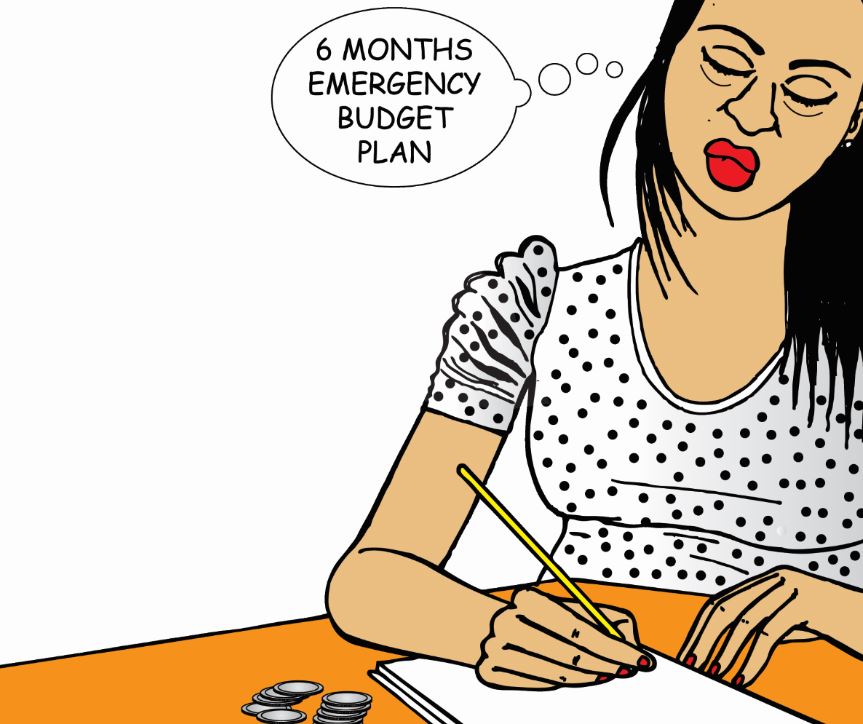
Dear Dr. Pesa,
How can I prepare financially if I’m about to lose my job?
I am a single mother with a son aged 10 years. I have been employed for the past three years but the company I work for is in the process of restructuring and I am afraid I might be retrenched within the next six months. I have no savings to my name and I am not sure I will be able to find another job before my time here lapses. How can I prepare myself financially before I lose my job? Also going forward, how do I plan my finances in a way that cushions me for uncertainties of life?
From a soon to be jobless mother.
Dear ‘Soon to be Jobless Mother’,
I am sorry to hear about your impending unemployment. Typically losing your job is not known six months in advance. Usually you are called to your boss’s office one afternoon, told that you are losing your job and then told to pack up your desk and leave. I know that sounds cruel to many people but I have actually found it is the best both for the company and the individual. This way, the employee can’t be accused of taking proprietary data away with them or in doing any kind of sabotage after they know that their job in ending.
For the employee, it saves the potential embarrassment of coming to work knowing that your colleagues know you are leaving (and yes they will know no matter how confidential you think the information is). If you are truly to be retrenched and not dismissed for cause you are entitled to severance which is a half month’s salary for every year of service. Depending on how long you have worked this can end up being a few months’ additional salary.
I will take as a given that you know or are convinced that you only have a limited amount of time to work with this company. So you now have six months to prepare. The first and rather obvious thing to do is start a search for a new job. But I gather you feel that even 6 months would be insufficient to get a new job.
The next recommendations are to do two things:
First, you need to list all of your expenses for the month and any other periodic expenses like school fees. If you had done a budget this would be rather easy but don’t worry most people don’t do budgets so you are not alone. You want to categorize each of your expenses as either a ‘must’ or a ‘want’. So things like rent, food, transport to work, water and electricity, etc fall into the ‘must’ category. These are the kind of expenses you just have to incur. You need to pay your rent or you risk being thrown out of your home. Sure you can delay paying some of these but not for long and there are usually bad consequences if you don’t pay them. The other category, ‘wants’ includes thing like getting your hair done, purchasing outside meals, buying clothes for you and your son and even expenses like buying data bundles from your network supplier. While you really would like to purchase these things, tough times call for tough measures. One you have the two lists add them up and you will get totals for expenses you must pay and expenses you would like to pay. I am assuming that your current salary is sufficient to buy the ‘must’ expenses with something left over.
Second, what you need to do for the next six months is to save as much money after you have paid for the ‘must’ expenses. You need to try very hard not to spend any money on the ‘want’ list. These savings will then be able to utilize to pay for the ‘must’ expenses when you don’t have a job. I know that in six months you are only likely to save something less than 2-3 months of ‘must’ expenses but that will now give you 8-9 months to look for a new position (the 6 months you think you will continue to work and the 2-3 months of savings that you have accumulated).
And if you get desperate and still don’t have a job, you can typically get away without paying many expenses for at least a month. Most landlords won’t throw out a good tenant if they are only in arrears by a month. My experience is the same with electricity and water. School fees on the other hand typically have to be paid on time (or very close to on time) if you don’t want your children sent home. This is not a good situation but life isn’t fair.
Preparing for rainy day
To prepare yourself for the future, I have always recommended that people do a budget. I have done a yearly budget for the past 30 years and it is extremely helpful not only to track your income and expenditures but also to keep track of your savings. Most folks want to save but don’t seem to be able to do it.
In addition, you need to create an emergency fund to cater for things such as losing your job or a number of other emergencies (medical, death in the family, etc) that life tends to send our way every once in a while on a very unplanned basis.
Like saving, people have a hard time doing it. My suggestion is that as soon as you have another job you take five per cent of your net income every month and put it aside. That still should leave you some money to spend on the ‘want’ list. An easy way to do that is to give your bank a standing order to take that amount out of your current account and put it into a savings account. Depending on the amount of ‘must’ expenses you have, it will probably take almost two years to accumulate enough money in the savings account. But once you do, the pressure and fear that comes from losing your job or having a medical emergency will lessen considerably.
Finally, once you have that emergency fund built you can keep on saving and that will allow you to make a big purchase (car, home, etc) later on.
I am sorry to hear that you may lose your job but there are a number of activities you can do that will lessen the trauma this time around and in the future.
Dr Pesa - R. D. (Bob) Paterson is currently the Chief Executive Officer of Roy Hauliers, a medium sized trucking company located in Nairobi. Bob has almost 50 years of general management experience in a number of countries. In addition, he is the Managing Director of Rieki Kenya, a consulting company that offers low cost/no cost consulting services to small and medium Kenyan companies and NGOs including providing training in the areas of personal finance, work/personal life balance, leadership, retirement planning and effective presentations.
 The Standard Group Plc is a multi-media organization with investments in media
platforms spanning newspaper print operations, television, radio broadcasting,
digital and online services. The Standard Group is recognized as a leading
multi-media house in Kenya with a key influence in matters of national and
international interest.
The Standard Group Plc is a multi-media organization with investments in media
platforms spanning newspaper print operations, television, radio broadcasting,
digital and online services. The Standard Group is recognized as a leading
multi-media house in Kenya with a key influence in matters of national and
international interest.
 The Standard Group Plc is a multi-media organization with investments in media
platforms spanning newspaper print operations, television, radio broadcasting,
digital and online services. The Standard Group is recognized as a leading
multi-media house in Kenya with a key influence in matters of national and
international interest.
The Standard Group Plc is a multi-media organization with investments in media
platforms spanning newspaper print operations, television, radio broadcasting,
digital and online services. The Standard Group is recognized as a leading
multi-media house in Kenya with a key influence in matters of national and
international interest.










